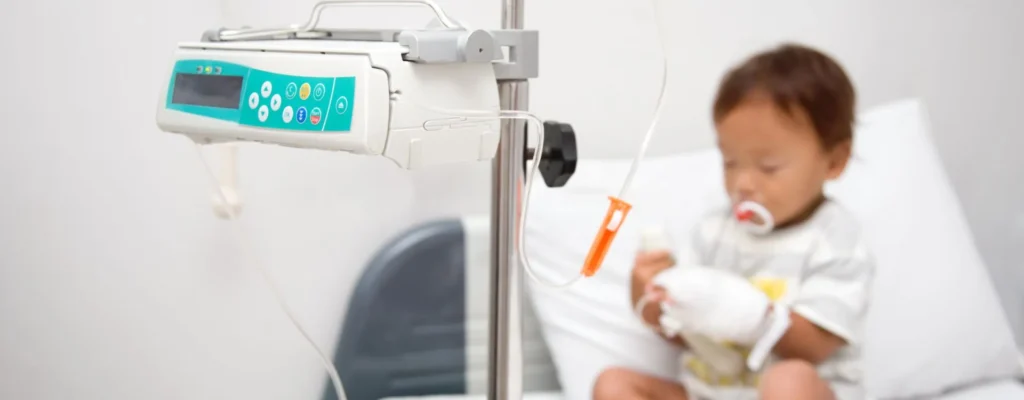
FDA Grants Breakthrough Status to BrainChild Bio’s CAR T Therapy for Pediatric Brain Tumors
BrainChild Bio, Inc., a clinical-stage biotechnology company at the forefront of neuro-oncology cell therapy innovation, has achieved a significant regulatory milestone with the announcement that its investigational autologous CAR T-cell therapy targeting B7-H3 has been granted Breakthrough Therapy designation (BTD) by the U.S. Food and Drug Administration (FDA). The therapy, known as BCB-276, is being developed for the treatment of diffuse intrinsic pontine glioma (DIPG), a devastating and currently incurable pediatric brain tumor.
The designation was awarded based on compelling early clinical evidence from the BrainChild-03 Phase 1 clinical trial (NCT04185038), which demonstrated encouraging overall survival benefits in children with brain tumors treated with the B7-H3-directed CAR T-cell therapy. The trial, conducted in collaboration with Seattle Children’s Hospital, has been closely watched by the scientific and medical communities for its potential to transform treatment outcomes in a disease area where therapeutic progress has long been stagnant. The Phase 1 data was recently featured in a publication in Nature Medicine, underscoring the therapy’s scientific and clinical significance.
A Transformative Milestone in Pediatric Oncology
Diffuse intrinsic pontine glioma is a rare but aggressive malignancy located in the brainstem, affecting primarily children between the ages of 4 and 12. Its location within the pons makes surgical resection impossible, and current standard-of-care options, such as radiation therapy, offer only temporary relief. Median survival post-diagnosis remains less than one year, and no FDA-approved therapies have succeeded in significantly altering this grim prognosis.
In this context, the FDA’s granting of Breakthrough Therapy designation to BCB-276 marks a potentially transformative development. The designation is reserved for investigational drugs that are intended to treat a serious or life-threatening condition and that show preliminary clinical evidence of substantial improvement over existing treatments. It offers a suite of regulatory advantages aimed at expediting the development and review processes, including more frequent and early interaction with the FDA, rolling submission of marketing application sections, and eligibility for priority review.
“This is a pivotal moment for the DIPG community and for pediatric brain cancer research as a whole,” said Dr. Michael Jensen, Founder and Chief Scientific Officer of BrainChild Bio. “Breakthrough Therapy designation gives us the possibility to accelerate the development path for BCB-276 as a CAR T-cell therapy that can potentially transform the treatment of DIPG. This recognition by the FDA affirms the strength of the clinical data generated to date and the therapeutic potential of our approach.”
Dr. Jensen, who also holds a faculty position at Seattle Children’s Research Institute, has long been a leading advocate for harnessing immunotherapy to address the unmet needs in central nervous system (CNS) tumors. The designation also marks a milestone in BrainChild Bio’s broader strategy to redefine treatment paradigms for difficult-to-treat brain tumors, including glioblastoma and CNS metastases.
Clinical Evidence That Shaped the Breakthrough Designation
The FDA’s decision to grant BTD was heavily influenced by data from the BrainChild-03 trial, which explored the safety and initial efficacy of repeated locoregional delivery of B7-H3 CAR T cells into the cerebrospinal fluid (CSF) via an intraventricular catheter. This innovative approach bypasses the blood-brain barrier, a significant obstacle in CNS drug delivery, allowing for direct and sustained therapeutic activity within the CNS environment.
In the study, patients with DIPG and other CNS tumors demonstrated favorable tolerability profiles and signs of clinical activity, including prolonged survival in some cases compared to historical benchmarks. The trial data not only met the threshold for safety in a fragile patient population but also offered the first real indication that CAR T-cell therapy could be engineered to work safely and effectively in the CNS.
The publication in Nature Medicine further validated these findings by providing peer-reviewed analysis and commentary on the approach, supporting the notion that B7-H3 is a viable and potent immunotherapeutic target in pediatric CNS tumors.
Strategic Development Path and Upcoming Clinical Milestones

Building on this momentum, BrainChild Bio is preparing to initiate a Phase 2 multi-center, pivotal registration trial of BCB-276. The forthcoming study will aim to generate the clinical efficacy and safety data required to support a future Biologics License Application (BLA) submission to the FDA. The company anticipates the trial will begin in late 2025, following alignment with the agency during a Type B meeting held in the fourth quarter of 2024.
The trial will be designed to further evaluate the benefit-risk profile of BCB-276 in a larger cohort of pediatric and young adult patients with DIPG. It will likely include multiple clinical sites to expedite enrollment and broaden the geographical scope of the study, increasing access for families seeking novel treatment options.
“This designation is not just a regulatory advancement—it is a powerful validation of the years of collaborative research and clinical investigation undertaken by BrainChild Bio and our partners at Seattle Children’s,” added Dr. Jensen. “We are committed to rapidly advancing BCB-276 through late-stage development with the goal of delivering a meaningful treatment option for children who currently face dismal odds.”
A Testament to the Power of Academic-Industry Collaboration
Seattle Children’s Hospital has played a central role in the development of BCB-276. As both a clinical trial site and a research engine, the institution exemplifies how academic institutions can serve as innovation incubators for high-risk, high-reward therapeutic strategies. The success of BrainChild-03 reflects the synergy between translational research and patient-centered clinical care.
Dr. Jeff Sperring, Chief Executive Officer of Seattle Children’s, emphasized the importance of this collaborative model: “This designation is an important milestone for Seattle Children’s and demonstrates our continued momentum in pediatric brain cancer research. We harness the power of research to bring potential cures to kids faster, and we’re excited by the early promise shown by our work with BrainChild Bio to advance a potential CAR T therapy.”
Seattle Children’s has been a national leader in pediatric immunotherapy and has previously collaborated on several first-in-human CAR T-cell trials. The institution’s infrastructure and expertise in pediatric oncology are instrumental in propelling cutting-edge therapeutics from bench to bedside.
Broadening the Impact of CNS-Directed Immunotherapy
While the immediate focus remains on DIPG, BrainChild Bio envisions a much broader clinical impact for its CNS-targeted CAR T platform. The company is actively exploring the application of its B7-H3 technology in other malignancies with poor prognoses, including glioblastoma multiforme (GBM) and secondary brain metastases from systemic cancers.
By building a portfolio of CAR T-cell candidates specifically engineered for CNS delivery, BrainChild Bio aims to address a long-standing therapeutic gap in neuro-oncology. The company’s approach—rooted in precision targeting, locoregional delivery, and collaborative development—offers a new vision for treating one of the most intractable categories of human disease.
In a landscape where most pharmaceutical innovation has historically bypassed pediatric oncology due to market and regulatory challenges, the FDA’s Breakthrough Therapy designation for BCB-276 stands as a beacon of hope. It affirms that scientifically bold, clinically rigorous approaches can indeed shift the standard of care—and perhaps, eventually, the survival curve—for children and young adults facing DIPG and similar CNS tumors.





